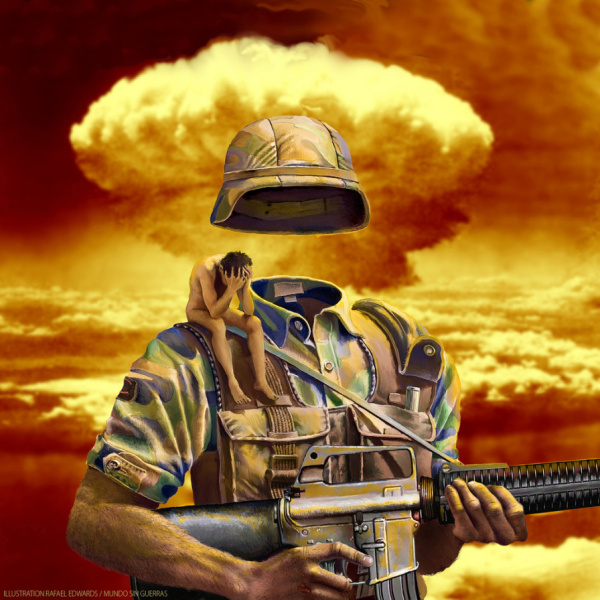It is not often that one finds in a newspaper, unassuming amongst other articles and comments, a thorough analysis of the futility of war, the propaganda that tries to give it some sense and the devastating consequences of armed struggle.
Geoffrey Wheatcroft writing today for The Guardian does precisely that, and even if there is a little idealised concept of some European countries as “democracies” he can be forgiven as it is a context situation to compare them with with the authoritarian regimes of Hitler and Stalin.
He reminds us that “… the glorification of the second world war has had practical and baleful consequences. It has led us to an easier acceptance of “liberal interventionism”, founded on the assumption that we in the west are alone virtuous and qualified to distinguish political right from wrong – and the conviction that our self-evidently virtuous ends must justify whatever means we employ, lighting up a bomber flare path from Dresden to Baghdad to Tripoli.”
Some changes in perspective are welcome because we decide our support to other future wars on the experience of past ones: “From 1941 to 1945, two vast, historically decisive wars were fought, between Germany and Russia for mastery of eastern Europe, and between Japan and the United States for mastery of the western Pacific. Other countries played minor parts, ignominious in the case of Italy, admirable in the case of Great Britain, at any rate in 1940, when the British defied Hitler but could not possibly defeat him, until he solved the problem for them and brought about his own doom by invading Russia in June 1941 and then declaring war on the United States (and not the other way round, be it noted) in December.”
There is so much information in this article which is not normally discussed that it makes very interesting reading for all those who have been saturated by war movies in the year of the Centenary of WWI. A real treat.






